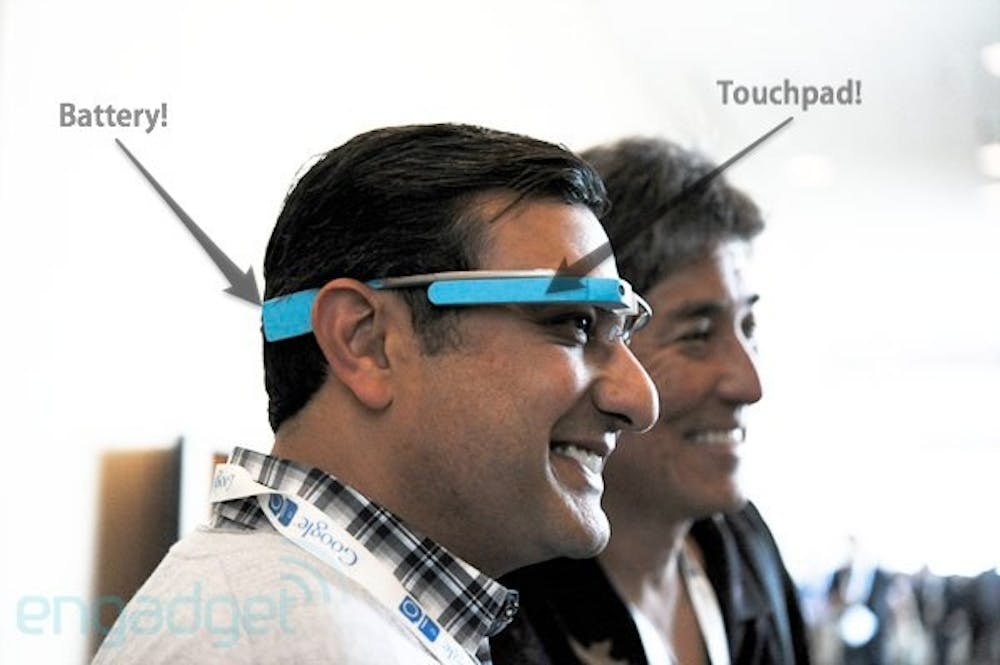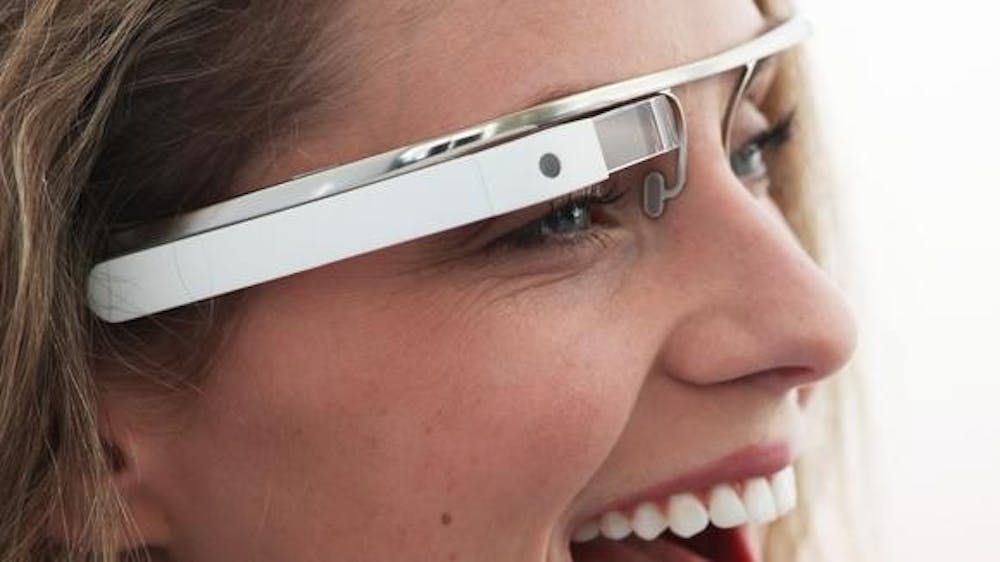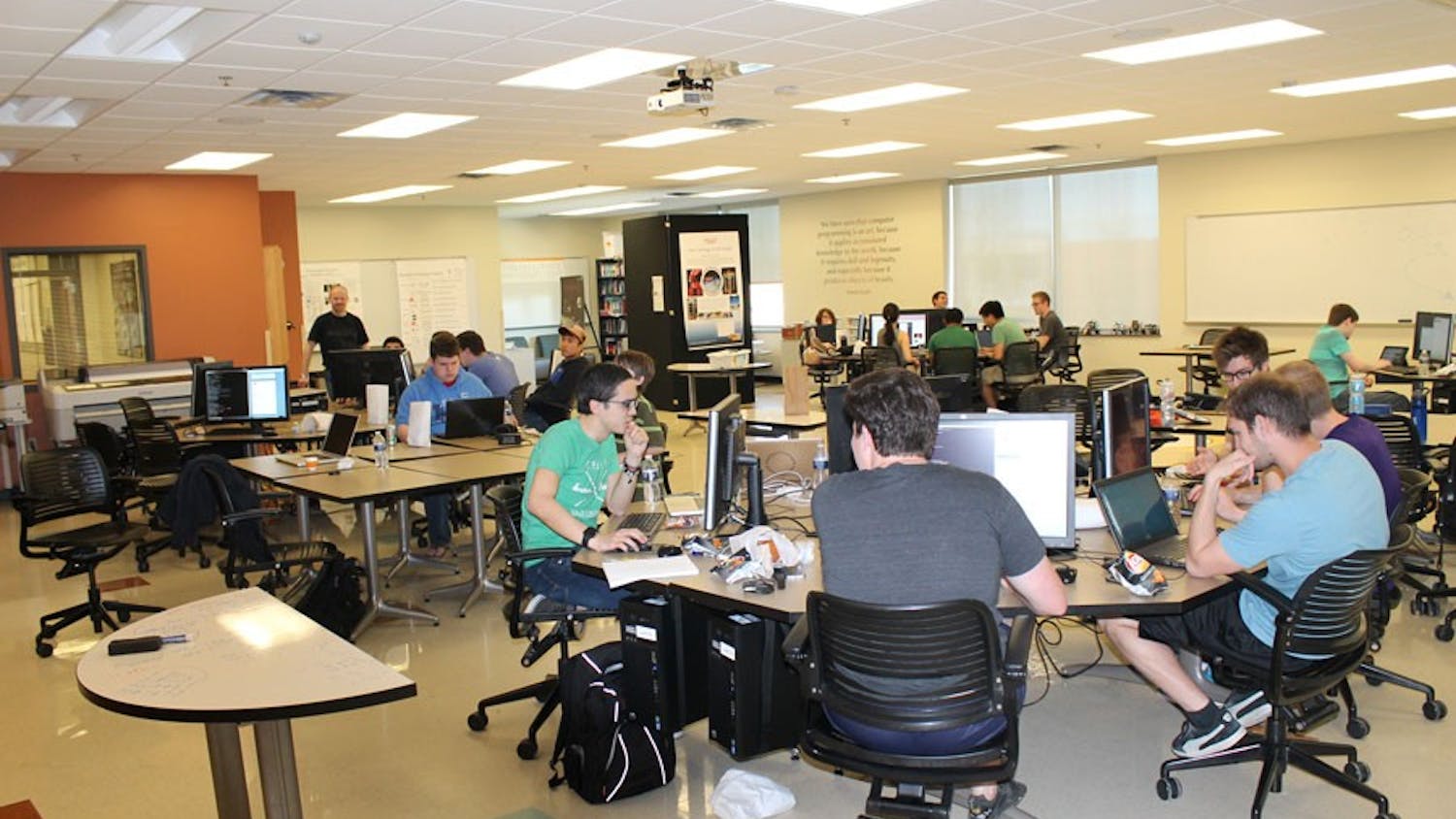
By Kyle Carruthers
At the end of January, Google filed a patent application called "Wearable Computing Device with Indirect Bone-Conduction Speaker."
Google Glass, the "wearable computing device," is a computer in a pair of glasses. Google is attempting to obscure many details about the device in an attempt to be first on the market, but the basics of the project have become common knowledge.
Google's notion is to create a pair of glasses that do almost everything a smartphone can do, according to The Conversation, an academically sourced news outlet.
The glasses will be able to check email, take photos, record video, make phone calls and play music. Glass could act as a GPS, provide information from online profiles about people the user is interacting with and keep schedules. Word isn't in on whether users will be able to play Angry Birds on it.
Wired reported that the device will transmit sound through vibration through the bone structure of the head, allowing sound from the device to travel to the eardrum without blocking outside sound like headphones do. On Jan. 31, Google filed technical specifications regarding this type of technology to ensure compliance with Federal Communications Commission regulations, CNET reported.
The specifications are for an edition of the device only available to developers, who were able to pre-order the device last June for $1500. Google intends to release the product for consumer purchase before the end of 2014.
An investigative mini-documentary by E.B. Studios examines how the glasses would work practically. A small screen the size of a stamp is located in the upper right hand corner of the glasses, allowing users to interact with the device. At some point, prescription lenses can be fitted to the device for users with impaired vision.
Some Google Glass developers were invited to special events Google calls "Glass Foundries," according to ReadWrite. There developers had to sign a detailed non-disclosure agreement before receiving a prototype Glass device to play with during the event. Developers will design the software and applications that will make Glass more than just a phone for your face. Despite the secretive technical details, the company has little problem with inducing intrigue around the device. Last summer during Google's annual I/O convention, the company hosted a live Google+ Hangout with a sky diver wearing Glass. Google co-founder Sergey Brin was also recently seen wearing Glass on a New York subway.
The constant access to technology that Glass can provide isn't exciting everyone. MIT professor Sherry Turkle believes that the always-on lifestyle of technology fosters compulsive reliance in inappropriate settings, according to The Conversation. Constant access to an augmented reality might exacerbate such compulsion.
"Even having a smartphone in your pocket is an augmented reality," argues Jeff Cramer, Associate Professor of Computer Science and Engineering.
He believes that Glass is only streamlining capabilities people already have to disconnect from the real world. However, he does say that doing so will have a devastating effect on face-to-face interaction.
There is time to think about the downsides, as Glass is at least a year away from release. That time might also allow people to get comfortable with it.
"On one hand I completely do not like the idea," Cramer said. "On the other hand I wonder, 'How soon will I want them?'"





